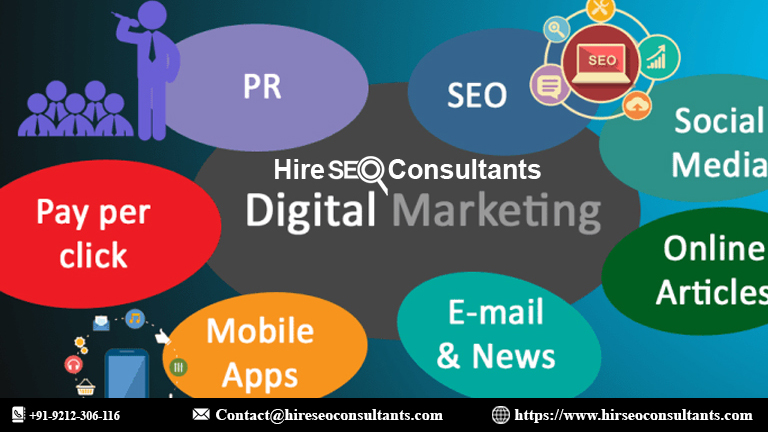Advanced Capabilities of Google Gemini AI
Multimodal Understanding: Google Gemini AI is designed to handle multimodal inputs, meaning it can process and integrate information from different sources, such as text, images, and audio. This capability allows Gemini AI to generate more nuanced and contextually rich responses. For example, in a customer support scenario, it can analyze text inquiries and associated images to provide more accurate solutions.
Real-Time Data Processing: One of the standout features of Gemini AI is its ability to process data in real-time. This is particularly useful for applications requiring instant feedback, such as live chatbots or real-time data analytics. Businesses can leverage this capability to improve user interactions and make quicker decisions based on the most current data.
Enhanced Contextual Awareness: Gemini AI’s advanced algorithms enable it to maintain context over extended interactions, which is crucial for tasks such as dialogue systems and long-form content generation. This enhanced contextual awareness ensures that the AI’s responses are coherent and relevant throughout an interaction or content piece.
Adaptive Learning: Google Gemini AI incorporates adaptive learning mechanisms that allow it to continually improve its performance based on user interactions and feedback. This feature ensures that the AI evolves and adapts to changing user needs and preferences over time, making it a robust tool for dynamic environments.
Industry-Specific Applications
Healthcare: In the healthcare industry, Google Gemini AI can be instrumental in streamlining operations and improving patient care. For example, it can assist in analyzing medical records to identify trends, generate patient reports, and even aid in diagnosing conditions by interpreting medical data. Additionally, it can enhance telemedicine by providing accurate and timely responses to patient queries.
Finance: In the financial sector, Gemini AI’s data analysis capabilities are invaluable for tasks such as fraud detection, risk assessment, and market analysis. Its ability to process large volumes of data quickly allows financial institutions to identify potential threats and opportunities with greater precision.
E-Commerce: For e-commerce businesses, Google Gemini AI can enhance the shopping experience by providing personalized recommendations, automating customer service interactions, and analyzing consumer behavior to optimize inventory and marketing strategies. Its natural language processing capabilities enable more intuitive and effective customer interactions.
Education: In education, Gemini AI can support personalized learning experiences by analyzing student performance and tailoring educational content to individual needs. It can also assist educators by automating administrative tasks and providing insights into student engagement and progress.
Considerations for Future Use
Ethical Implications: As with any advanced technology, the use of Google Gemini AI raises ethical considerations. It’s important to address issues related to data privacy, algorithmic bias, and the potential for misuse. Ensuring transparency in how AI systems are used and implementing robust safeguards is crucial for maintaining ethical standards.
Continuous Improvement: AI technology is rapidly evolving, and staying current with advancements is essential for leveraging its full potential. Regular updates and continuous learning are necessary to keep Gemini AI aligned with the latest research and best practices in the field.
Integration Challenges: While integrating Google Gemini AI into existing systems can offer significant benefits, it also presents challenges. Ensuring compatibility with current technologies, managing data integration, and training staff to effectively use AI tools are key considerations for a successful implementation.
User Experience: Although the focus is on leveraging AI capabilities, it’s important to consider the user experience. Ensuring that interactions with Gemini AI are seamless and intuitive enhances its effectiveness and fosters positive engagement with users.
Future Prospects of Google Gemini AI
As AI technology continues to advance, the future prospects for Google Gemini AI are promising. Potential developments include:
Increased Automation: Future iterations of Gemini AI may offer even greater automation capabilities, handling more complex tasks and reducing the need for human intervention in various processes.
Greater Personalization: Enhancements in machine learning algorithms could lead to even more personalized experiences, with Gemini AI delivering highly tailored content and interactions based on individual preferences and behaviors.
Enhanced Collaboration: Collaborative features could be developed to allow Gemini AI to work more effectively with human teams, facilitating better integration and interaction between AI systems and human operators.
Broader Applications: As Gemini AI’s capabilities expand, its applications are likely to grow across more industries and use cases, offering innovative solutions to a wider range of challenges and opportunities.
Google Gemini AI represents a significant leap forward in artificial intelligence, offering powerful tools and capabilities that can transform how businesses and individuals interact with technology. By understanding its advanced features, industry applications, and future prospects, you can effectively harness the power of Gemini AI to drive innovation and achieve strategic goals.
As you explore the potential of Google Gemini AI, consider the ethical implications, stay informed about technological advancements, and focus on delivering a seamless user experience. With these considerations in mind, Gemini AI can become a valuable asset in your technological toolkit, enabling you to stay ahead in an increasingly competitive landscape.
FAQ: Google Gemini AI
What is Google Gemini AI?
Google Gemini AI is an advanced artificial intelligence model developed by Google, designed to enhance various aspects of digital interaction and data analysis. It utilizes sophisticated natural language processing, machine learning, and data insights to perform tasks such as text generation, sentiment analysis, and real-time data processing.
How does Google Gemini AI differ from other AI models?
Google Gemini AI distinguishes itself through its advanced multimodal capabilities, which allow it to process and integrate information from multiple sources, such as text, images, and audio. Additionally, its adaptive learning mechanisms enable it to continuously improve based on user interactions and feedback.
What are the primary features of Google Gemini AI?
Key features of Google Gemini AI include:
- Natural Language Understanding: Ability to comprehend and generate human language with high accuracy.
- Advanced Machine Learning: Robust algorithms for analyzing complex data sets and providing actionable insights.
- Real-Time Data Processing: Capability to handle data and interactions in real-time.
- Customization and Integration: Flexibility to tailor the AI's functions and integrate with existing systems.
What industries can benefit from Google Gemini AI?
Google Gemini AI can benefit various industries, including:
- Healthcare: Streamlining operations, improving patient care, and analyzing medical records.
- Finance: Fraud detection, risk assessment, and market analysis.
- E-Commerce: Personalized recommendations, automating customer service, and optimizing marketing strategies.
- Education: Personalized learning experiences and automating administrative tasks.
How can businesses start using Google Gemini AI?
To start using Google Gemini AI, businesses should:
- Define Objectives: Identify specific goals and use cases.
- Choose Tools: Select appropriate tools and services from Google Cloud Platform.
- Integrate Systems: Ensure seamless integration with existing workflows and technologies.
- Train and Customize: Tailor the AI to specific needs and train the model.
- Monitor and Optimize: Continuously monitor performance and make necessary adjustments.
What are some best practices for using Google Gemini AI?
Best practices include:
- Providing Quality Data: Ensure data used for training is accurate and relevant.
- Staying Updated: Keep informed about the latest updates and features.
- Ensuring Data Privacy: Comply with data privacy regulations and implement security measures.
- Engaging Experts: Work with AI experts to optimize performance and implementation.
What are the ethical considerations associated with Google Gemini AI?
Ethical considerations include:
- Data Privacy: Protecting user information and complying with privacy regulations.
- Algorithmic Bias: Addressing and mitigating potential biases in AI models.
- Transparency: Ensuring clear communication about how AI systems are used and their impact.
What challenges might arise when integrating Google Gemini AI?
Challenges may include:
- Compatibility: Ensuring Gemini AI integrates well with existing technologies.
- Data Integration: Managing and aligning data from various sources.
- Training and Adoption: Training staff and adapting workflows to effectively use AI tools.
How does Google Gemini AI handle real-time data processing?
Google Gemini AI’s real-time data processing capability allows it to analyze and respond to data as it is received, enabling instantaneous feedback and decision-making. This is particularly useful for applications like live chatbots and real-time analytics.
What future developments can be expected for Google Gemini AI?
Future developments may include:
- Increased Automation: Greater automation capabilities for complex tasks.
- Enhanced Personalization: More tailored experiences based on individual preferences.
- Broader Applications: Expansion into new industries and use cases.
- Improved Collaboration: Better integration and interaction between AI systems and human teams.




















